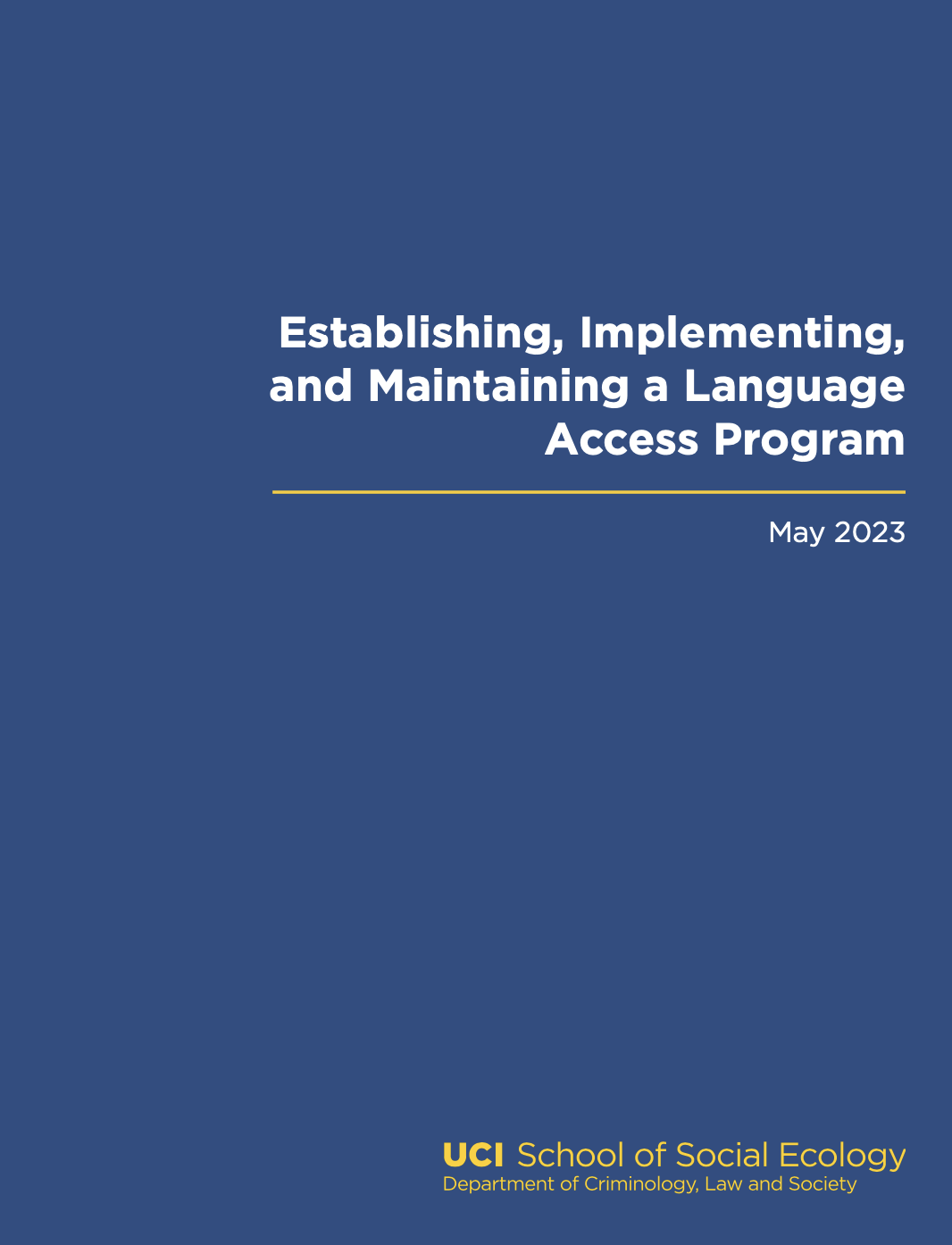Issue Brief
Racial and Ethnic Disparities May 23, 2023
Establishing, Implementing, and Maintaining a Language Access Program
The MacArthur Foundation launched the Safety and Justice Challenge (SJC) in 2015 with the goals of safely reducing jail incarceration and addressing racial and ethnic disparities in the criminal justice system. The SJC Network currently includes fifty-seven sites. The local criminal justice systems in these localities serve racially and ethnically diverse populations comprised of subgroups with different characteristics and needs, including people who are limited English proficient (LEP). As defined by the U.S. Department of Justice (Guidance to Federal Financial Assistance Recipients Regarding Title VI Prohibition Against National Origin Discrimination Affecting Limited English Proficient Persons, 2002), a person is LEP if their primary language is anything other than English and if they have a limited ability to read, write, speak, or understand English. An estimated 25 million people in the United States are LEP (2020 American Community Survey, 5-Year Estimates). The national origin nondiscrimination provisions of Title VI of the Civil Rights Act of 1964 (“Title VI”) require recipients of federal financial assistance to provide people who are LEP with meaningful access to their programs and activities (e.g., in-language communication, telephonic interpretation, and translation of vital documents).
Many organizations and agencies within local criminal justice systems receive federal financial assistance and are thus legally obligated to provide language services. When law enforcement agencies, court systems, and correctional systems provide adequate language services they strengthen access to justice for people who are LEP - e.g., providing life-saving public safety assistance, supporting victims of crime, and delivering vital medical and behavioral care to people who are incarcerated. While national guidance for improving language accessibility exists, the extent to which language services are available in local justice systems is relatively unknown.
